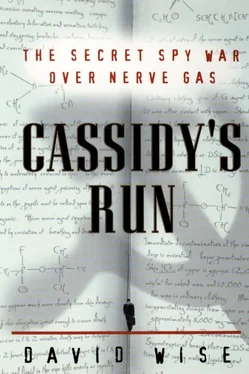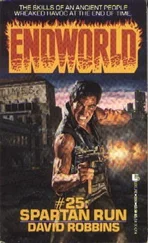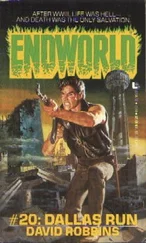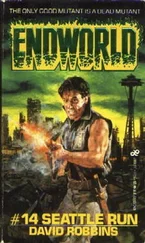In the days before Basford got his plane, he and Tish traveled by car and canoe “around the Gaspé and Cape Breton Island, all though Maine and the Maritimes, up to Yellowknife and across Canada to Alaska. We portaged into wild lakes and watched the northern lights. We always took the small roads and the unfrequented ones.”
As the years went by, Tish Basford had more reason to admire the quiet, handsome man she had married. “He helped to rehabilitate some of the people he had arrested. We had ex-felons using the band saw in the basement and calling him when they had troubles. He was a kind, thoughtful, and compassionate man.”
Julie Kirkland stillhad the odd, cold sensation when she returned from the Farmer’s Market. She felt growing apprehension that something had happened to Mark. She cleaned the house, made dinner for the kids, gave them baths, and put them to bed around 8 P.M.
Then she made her first call to the bureau. Most often, on an aerial surveillance, the plane would put down for the night wherever the target stopped, and the agents would go to a hotel.
“Usually when they got into a hotel, they could patch me through,” Julie said. “I called the bureau operator, and she was shaken. I asked, ‘Can you patch me through?’ She was very nervous and said, ‘I don’t believe they’re back to their room yet. I’ll have them call you.’ I waited another hour and called again. The feeling of coldness returned. The operator again said they are not at the hotel. She said, ‘I’ll have to have someone call you.’
“I waited and called the bureau again. This time I was aggressive. I said, ‘Give me an FBI agent now.’ She blurted, ‘I think someone’s on their way to talk to you.’
“Sometime between eleven and midnight, there was a knock on the door. John Shimota, an agent and a dear friend, and Dave Flanders, the assistant agent in charge, were there.
“I believe it was John Shimota who told me. But I knew. When they were banging on the door, I said, ‘I’ve got to answer that door.’ I just couldn’t bring myself to answer the door. Then I heard one of the agents talking about breaking a window. So I had to go to the door. When I opened it, I said, ‘I know, you guys.’ They looked kinda surprised. They asked me to sit down. I said I wanted to know what happened to Mark. They kept asking me to sit down.
“They said, ‘There’s been an accident. Honey, you’ve got to sit down.’ I said, ‘He’s gone, isn’t he?’ And John said, ‘Yes, he’s gone.’ And he held me in his arms.
“I’d been living with it for hours. I kept saying, ‘This cannot be happening to me. This can’t be true. What about my boys? They’ll never know their father.’ I was very upset. I didn’t cry for about an hour. I felt like someone had rammed a pole through my gut. I can’t explain the physical pain I felt.”
The first callto the Saint Louis County sheriff’s department had come in at 5:05 P.M. from Fred McLeod, who lived on the west side of Dewey Lake. He had heard something and believed a plane might have crashed in the lake. A moment later, a woman who lived at the lake called in with a similar report. Deputy Sheriff John Anderson and Nick Milkovich, the twenty-four-year-old township police chief, jumped in Anderson’s squad car and headed north for the lake. On the way, the Hibbing police department radioed that an eyewitness had reported a plane upside down in the northeast side of the lake, with only its tail above water.
By 5:25 P.M., the officers were at the scene. The yellow and white Cessna, with the aircraft number N84260 clearly visible at the rear of the fuselage, was resting upside down in about twelve feet of water. In the laconic language of the sheriff department’s report, there was “no visible sign of life.”
The plane had crashed directly in front of the lakeside home of George Pajunen. According to the official report, “Pajunen stated he heard a plane flying low, then a loud noise and then silence.” Several residents went out in small boats to try to rescue the plane’s occupants, but there was nothing they could do. One eyewitness thought the plane had tried to land twice and on the third attempt had lost power and plunged into the lake. Other residents reported it had been raining hard and that there had been fog in the area when the Cessna crashed. [2] Minnesota was experiencing freak weather conditions that week. The day after the fatal crash, tornadoes ripped through Crow Wing, Wadena, and Otter Tail counties in central Minnesota, injuring seventeen persons. Some of the worst damage occurred in Brainerd, about a hundred miles from the crash site.
Deputy Anderson also noted the fog.
To Nick Milkovich, the most telling evidence that the plane had had engine trouble was that it had gone down so close to shore. Milkovich had flown a lot in floatplanes, and he knew that normally a pilot tried to land into the wind and to stay well clear of trees, which meant that the plane ordinarily touched down toward the center of a lake, not near the shore.
Milkovich also had reports from residents in Chisholm, to the south, who said the plane, its engine sputtering, had a few minutes earlier flown low over the town, as though it might try to land in Longyear Lake right in Chisholm. [3] The exact cause of the crash may never be known. The National Transportation Safety Board, which investigates most aviation accidents, has no record of the crash. Betty Scott, an NTSB spokesperson, said that in 1977 the NTSB did not investigate crashes of planes flying on government business, although it sometimes does today. “Even though the plane was owned by an individual, if it was on official business, it would not be in our system.”
More deputies arrived. The county medical examiner and divers were summoned. The plane’s floats seemed to have exploded, and the fuselage was twisted, indicating that the plane had gone into the water nose down and flipped over. The pilot and his passenger had died on impact, still strapped in by their seat belts.
Tish Basford wassorting laundry when they came up the walk. John Otto, the special agent in charge in Minneapolis, and his wife, and Basford’s partner, Frank Grady, and his wife, arrived around 10:30 P.M. [4] Otto later rose to associate director of the FBI, then the number-two position in the bureau, and for nearly six months in 1987 he served as acting director after FBI chief William H. Webster left to head the CIA.
“When I saw them,” Mrs. Basford said, “I knew. I think every law-enforcement wife knows it might happen at some time. John Otto was unbelievable, I will never forget his great kindness.
“I do not blame the bureau, it was an act of nature. Tren never had to face the ravages of old age, disease, and futility. He died in his prime, being useful and doing what he most liked to do.”
The FBI, the Minneapolis Star reported the next day, said that the two agents were “on routine investigations” at the time of the crash. The FBI spokesman in Minneapolis, Arthur Sullivan, professed not to know “where they were flying from or their destination.” Sullivan seemed to go out of his way to assure reporters that Basford had “worked his entire career in what we call criminal matters, not security cases.” The Minneapolis Tribune similarly reported that FBI officials said the agents “were on routine business at the time, helping Duluth authorities in a number of cases.” [5] FBI agents are rarely killed in the line of duty. The Tribune story noted that the last two agents to die on duty had also been stationed in Minneapolis—Ron Williams and Jack Coler, killed in 1975 at Wounded Knee.
The St. Paul Dispatch said the FBI explained that the two men “had been in Duluth assisting agents there for several days.” These stories and others did not indicate that anyone in the news media had questioned why, if the agents were working in Duluth, their plane had crashed some seventy miles northwest of that city.
Читать дальше












